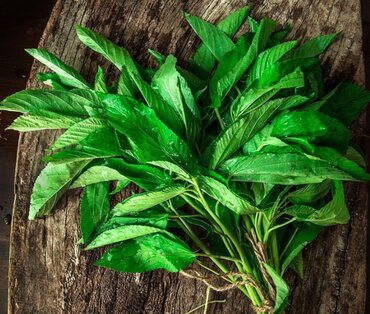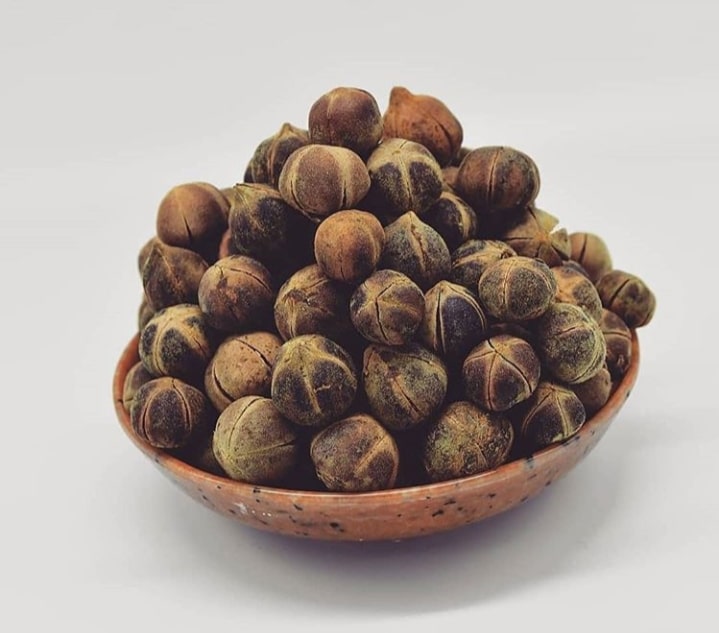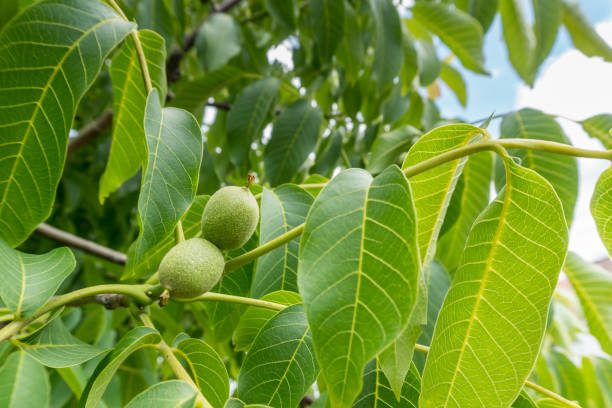The cashew tree (Anacardium occidentale) is a tropical evergreen tree native to northern Brazil, Vietnam, India, Ivory Coast, Nigeria, and the Philippines. Cashew leaves are leaves of the cashew tree; they are oval with noticeable veins and midribs. A leaf is usually about 10 to 20 centimeters long, and 7 to 12 centimeters wide. They have a tangy, and astringent taste.
Cashew leaves have been said to be particularly useful in treating a variety of ailments. They are consumed worldwide due to their excellent taste and unique nutritional content. In many traditional medicinal practices, cashew leaves are boiled are then used for treatment. Thus, we will be discussing the health benefits of boiled cashew leaves. However, before that let’s find out the nutritional composition of cashew leaves.
Nutritional Composition of Cashew Leaves

According to medical research, cashew leaves are rich in antioxidants and have antifungal, antiparasitic, antibacterial, antiseptic, and anti-inflammatory properties. They contain significant amounts of vitamin A, vitamin B, and vitamin C. They are also good sources of iron and calcium, and also contain zinc, magnesium, phosphorus, manganese, sodium, and potassium. One study on the phytochemicals constituents of cashew found out that the leafs contained tannins, saponins, flavonoids, alkaloids, and carotenoids.
Health Benefits of Boiled Cashew Leaves

In ethnomedicinal practices, cashew leaves are usually boiled and used for their medicinal properties. Hence, this article focuses on the health benefits of boiled cashew leaves.
1. Promotes oral health
In many parts of the world, cashew e are chewed and used as toothpaste and are further used to treat toothaches and gum problems. They are also pulped to make mouthwashes. A 2015 study investigated the in vitro antimicrobial and cytotoxic effects of cashew leaves in oral care. The study found out that cashew leaves suppressed oral pathogens, and were less cytotoxic compared to other mouth rinses. Hence, cashew leaves are superior to mouth rinses and can be used in oral health care.
2. Antimicrobial potency
Cashew Leaves have also shown notable antimicrobial potency. Ethanolic extract of the leaves inhibited human pathogens. In numerous studies, the leaf extract was capable of inhibiting microbial growth.
3. Wound-healing properties
For decades, cashew leaves have been used to treat wounds and skin burns. According to studies, the leaves possess anti-Inflammatory properties and can stimulate healing responses on the skin. Furthermore, cashew leaves may also be used for cosmetic purposes
4. Reduces cholesterol
Boiled cashew leaves have an ideal fat profile for controlling cholesterol and triglycerides, lowering the risk of heart disease. The fiber and antioxidants in it reduce it even more. However, if the quality of cashew fats is higher than the average of nuts, the percentage in your case may likely be higher.
The presence of phytosterols, tocopherols, and squalene, are all antioxidant plant chemicals that reduce the risk of heart disease. It also helps to define cashew leaves as a good meal for the cardiovascular system. A 2016 study attested to the cholesterol-lowering effect of cashew leaf.
Meanwhile, phytosterols, naturally found in cashew leaves, are the same ones that are chemically added to meals.
5. Antidiabetic activities
Cashew leaves have been used by tropical countries and by traditional practitioners as a traditional remedy for the treatment of diabetes mellitus. A 2017 study was done to determine the antidiabetic activity of extracts of cashew leaves on n-streptozotocin diabetic rats. The results of the study showed that cashew leaves demonstrated significant antidiabetic potential, and were compared to treatment with the standard drug Pioglitazone.
6. Improves bones and nerve health
One of the health benefits of boiled cashew leaves is they are high in magnesium. This magnesium is necessary for the proper development of bones, muscles, tissues, and organs.
Besides, magnesium aids in the maintenance of blood pressure, immunity, neuron function, and bone strength. It also aids metabolic processes and aids in the regulation of blood sugar levels through insulin actions.
7. Boosts immune system
Zinc in cashew leaves is essential for the immune system’s defense against microbial infections and wound healing. Also, maintaining a healthy physique can be highly crucial throughout pregnancy for a baby’s growth and development. According to the results of a 2019 study, cashew leaves can strengthen immunity.
8. Contains powerful antioxidants
Antioxidants present in cashew leaves, such as cardanols, anticardic acids, and cardols, can be used to treat cancer and tumors. Meanwhile, grounded cashew leaves are a comparatively simple absorbed form of protein and are safe for patients. They contain phenolic compounds that destroy free radicals in the body. One study even stated that boiled cashew leaves showed strong antioxidant activities.
ALSO READ:
- 10 Amazing Health Benefits of Oha Leaves
- 6 Amazing Health Benefits Of Ukpo Seeds (Mucuna Sloanei)
- 5 Powerful Health Benefits of African Pear Leaves
- Morinda Lucida (Oruwo Leaves): Health Benefits and Effects
- 11 Health Benefits of Ogirisi Leaves (Newbouldia laevis)
- Costus afer (Okpete): Health Benefits and Side Effects
Collins Nwokolo is a human physiologist, writer and health enthusiast. He loves writing helpful articles on health and fitness, which he enjoys sharing with everyone.









